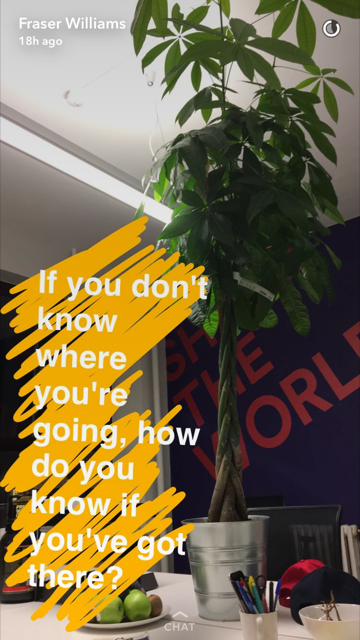I’ve written before about why I’m not convinced by New Year’s Resolutions. I think if you want to make change, make it there and then and not wait until the new year.
But, if you insist, please at least stick to them!
I can’t say I’m an expert in habit setting or goal achievement, but if I want to start and maintain something here’s what I do:
1 – Change my phone wallpaper
A constant reminder can be a huge help. Whether it’s a reminder of what to do, what we want to achieve, or even what we want to avoid.
We look at our phones constantly and therefore it is the perfect place to put that reminder. Find an image or some text that summaries the resolution and put it as your phone background, that way you will see it many times a day and it will begin to set in.
Also, I find my phone to be quite a personal thing – not many other people will see my phone in the day and so by setting a goal on there I find I set it personally. I’m not making a note of it for all to see. Also, the reminder can be personal, something only you understand. For example, you want to lose weight before a holiday – your background could be a picture of holiday destination, no one else has to know what your true goal is.
2 – Be tough for the first month
The success of goals is often determined by the setting of habits; going to the gym, reading, learning, practicing etc. Often it involves a repeated action. But the whole reason behind the resolution is the lack of said action in the previous year. So you’re unlikely to just be able to start doing it continuously, otherwise you’d already be doing it.
To set a habit I need to be tough at the start. No excuses, extra planning to ensure I get what I need done, not missing a day. After the first hurdle it becomes part of routine and so you can let up a little. However, always be cautious that a habit can slip, so keep an eye on it – if you start to waver, be tough again!
3 – Tell someone who cares
It can be really easy to convince ourselves for why we aren’t doing something we should be doing. We can create excuses or scenarios as to why it was feasible. But it isn’t always to easy to tell another person.
Find someone that cares about you achieving this goal and get them to remind you of and make you accountable. When they ask if you have completed an action and you say no, make sure they demand why. The accountability will keep you in check, after all you don’t want to disappoint them and be seen to be failing.
The resolutions won’t just stick – you have to implement mechanisms to help them become routine. Find what works for you and make 2017 the year you complete you New Year’s Resolutions.













